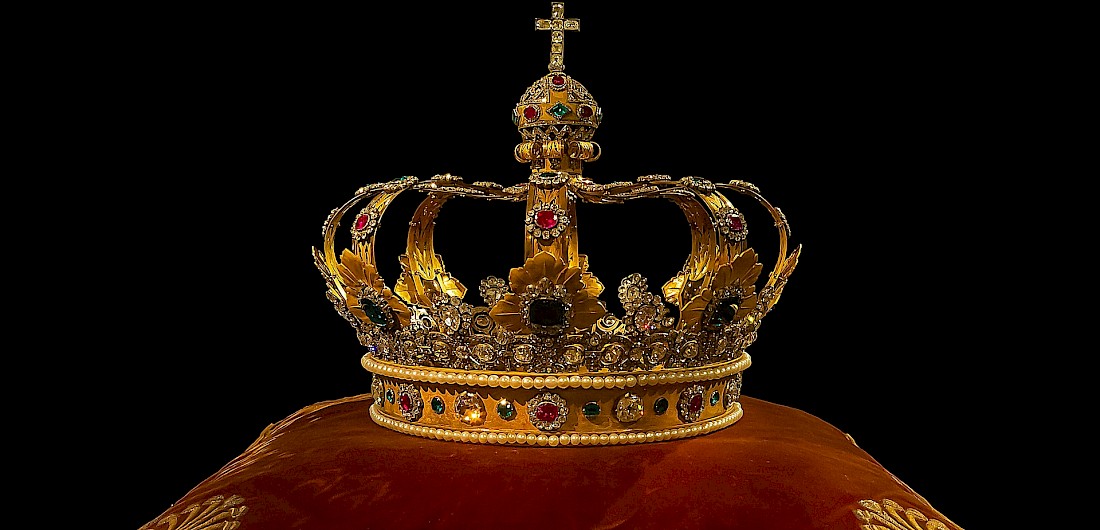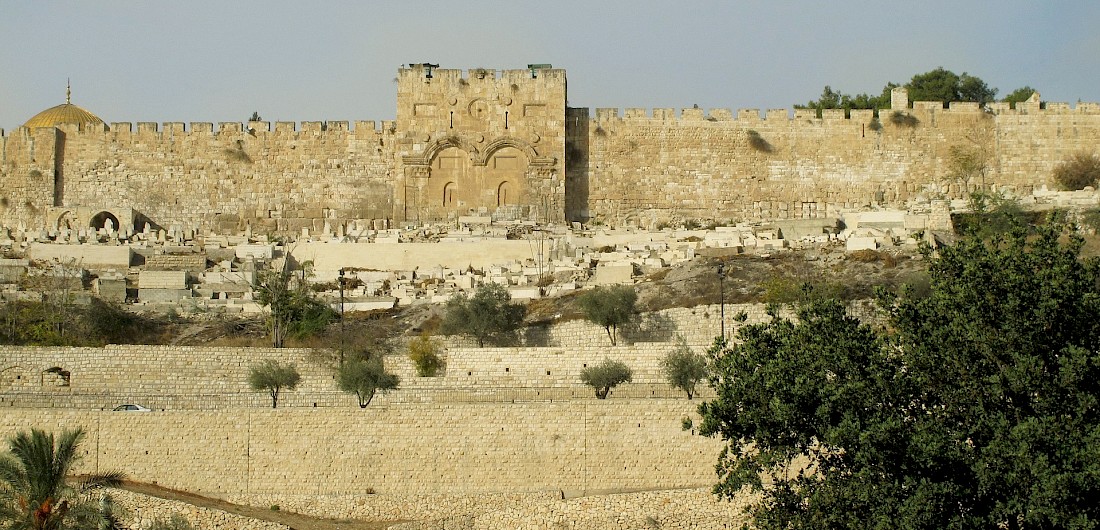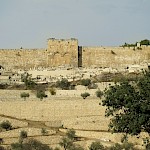The Lord Jesus Christ: His Offices
We have looked at some aspects of the glory of the person of Christ (chapter 1) and of the glory of His work on the cross (chapter 2). In addition to all of these glories there are the official glories of Christ. These have to do with His offices or functions today and in the future.
3.1 What does the Lord do as our Great High Priest?
The Lord Jesus is a High Priest and, as such, intercedes for us (Rom 8:34 and Heb 7:25, 26). He is perfectly able to help those who are tempted because He became man and, in this way, became ‘like unto His brethren’ (Heb 2:17, 18). He is perfectly able to sympathise with us in our struggles and problems because He ‘was in all points tempted like as we are, yet without sin’ (Heb 4:15). He knows and understands our infirmities (hunger, thirst, tiredness, pain, and sorrow) perfectly.
In the Old Testament, there are two important high priests: Aaron and Melchisedec. Aaron’s task was to go into the holy place (‘intercede’) on behalf of the people and to make atonement for them in the holy of holies, once a year (Lev 16). Melchisedec, on the other hand, strengthened Abraham with bread and wine after his battle against the kings (Gen 14:18). He blessed Abraham and he blessed ‘the most high God’ (Gen 14:19, 20).
Today, the Lord Jesus is High Priest according to the order of Melchisedec (Heb 5:10), but the tasks He carries out correspond to Aaron’s priesthood: He has made atonement for us on the cross, and He intercedes for us. In the future, after the tribulation period, He will strengthen the Jewish remnant following their battles, much as Melchisedec did Abraham, and will introduce His millennial reign of blessing for His people Israel. At that time God will be worshipped as the ‘most high God.’

3.2 What does the Lord do as Advocate?
As advocate, the Lord Jesus is available for us when we have sinned. Believers do not have to sin and should not sin, but sadly do so: ‘My little children, these things write I unto you, that ye sin not. And if any man sin, we have an advocate with the Father, Jesus Christ the righteous’ (1. Jn 2:1). He is uniquely qualified to take up our cause as He is ‘the righteous.’
Thank God, He does not wait until we have confessed our sins before He acts as our advocate but takes the initiative. The moment we have sinned we have an advocate with the Father.

3.3 Will Christ reign as king over this earth?
Yes. The Old Testament is full of prophecies confirming this. To quote just a couple of examples: ‘Yet have I set my king upon my holy hill of Zion’ (Ps 2:6); ‘And the Lord shall be king over all the earth: in that day shall there be one Lord, and his name one’ (Zech 14:9). See also Ps 72:8-11, for instance.
These scriptures leave no doubt that our Lord will literally reign over the earth.

3.4 Why is this important?
It is important because God has said it, but also because Christ was rejected when He came to this earth in grace. God has decreed that He will reign and be recognised universally in the place where He was rejected. It also means that a time of proper and just government will finally come for this world.
Christ humbled Himself and God will make sure that He will be exalted (Phil 2:5-11; Is 52:13-15).

3.5 When will this be, and how long?
The time of the church will end with the rapture. Then, possibly after an interval, a period of seven years of tribulation will follow. At the end of this, Christ will appear in power and set up His kingdom. This kingdom will last 1,000 years: ‘…and they lived and reigned with Christ a thousand years’ (Rev 20:4). This is why the coming kingdom is often referred to as ‘the Millennium’ (derived from the Latin for ‘1,000 years’).

3.6 What will it be like in the Millennium?
Christ will reign in peace (Ps 72:7), righteousness (Is 11:3-5), and holiness (Ps 47: 8 and Zech 14:20, 21). The earth will be purified to such an extent that Isaiah refers to it as a ‘new earth’ (Is 65:17; 66:22). Harmony in creation will be re-established: ‘The wolf also shall dwell with the lamb…’ etc. (Is 11:6-8; Rom 8:19-22). And ‘the earth shall be full of the knowledge of the LORD, as the waters cover the sea’ (Is 11:9). See also Isaiah 35.
It will be a time of joy (Is 65:18, 19). Satan will be bound and confined to the ‘pit’ (Rev 20:1, 2). If anyone sins (this is still possible; Satan will be bound but people on earth will still have a sinful nature and be able to sin deliberately) he or she will be judged swiftly (Ps 101:8; Is 65:20).
Israel will be the centre of Christ’s kingdom on earth and the channel of blessing for the nations (Is 2:2-4; 65:18-20; Zech 8:20-23; 14:16, 17).
The church, during this time, will be the heavenly city, the ‘holy Jerusalem’ (Rev 21:9-22:5).

3.7 Is it right for Christians to call Christ their ‘King’?
No, neither now nor in the future. He is their Lord and He will be King, but not theirs. In general, members of the British Royal Family would not address the Queen as ‘Your Majesty.’ They are much closer to her than all her other subjects.
Similarly, Christians are part of the bride, the church, and therefore know Him as the Bridegroom, as Head of the church (see Q 3.10), and as their Lord (see Q 3.8).

3.8 What is meant by the ‘Lordship of Christ’?
Christians gladly recognise that Christ is their Lord. The gospel accounts show that the disciples, in addressing Christ, called Him Lord’ (John 13:13; 21:7). After Christ’s death and resurrection, the dec- laration was made that God had made Him ‘Lord and Christ’ (Acts 2:36). It is the identifying mark of Christians that they habitually ‘call upon the name of the Lord Jesus Christ’ (1 Cor 1:2; 2. Tim 2:22). The believer is conscious of having been ‘bought with a price’ (1. Cor 6:20) and therefore recognises the lordship of Christ. He regards himself as a ‘servant of Christ’ (1 Cor 7:22; Phil 1:1).

3.9 Is Christ the Lord of believers only, or also in relation to unbelievers?
The rights of the lordship of Christ also extend to unbelievers, who try to ignore them, however. In this context a different word is used in the New Testament (‘despot’, see 2. Peter 2:1). But ‘every tongue’ will ‘confess that Jesus Christ is Lord’ (Phil 2:11). This will take place at the time of His appearing in glory (see Q 4.12 - Q 4.15).

3.10 What is meant by ‘Headship of Christ’?
There are several aspects of Christ’s headship. He is head:
• personally of every man (1 Cor 11:3)
• universally of all things (Eph 1:20-23)
• corporately of the church (Eph 1:23; 5:23; Col 1:18).
The lordship of Christ is linked with His authority over the individual believer as His servant. The headship of Christ is linked with our common responsibility as members of His body (see Q 7.8) to follow His instructions in our collective walk.
The Head not only gives direction to the body, but also takes care of it.
Christ is Head as man; the man who died, rose again and is now glorified in heaven (He could not become the Head of the body before the body was formed; Col 1:18).
Believers need to ensure that their practical walk [6] reflects the fact that Christ is their Head (Col 2:19; Eph 4:15).
6 The ‘churches’ and denominations founded by men are in plain contradiction with the truth that there is only one church, and that this church is governed by one Head - Christ. See chapter 7











